- PECA
- AGROKAZ
- KUTEL Project
- SAGRIS Project
- EDUQAS Project
- The World Bank Project
- DEQAR CONNECT
Project GIZ «Professional Education for Economic Growth Sectors in Central Asia» (PECA)
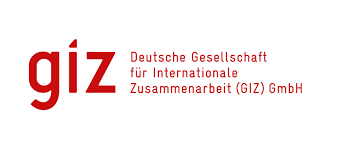
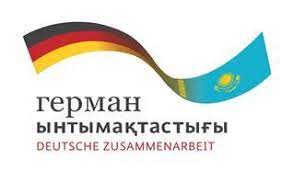
At the end of 2022, IAAR participated in a project proposal by the German Society for International Cooperation (GIZ) to provide services for "International Accreditation of Educational Programs in Food Technology". The regional project "Professional Education for Economic Growth Sectors in Central Asia" (PECA), commissioned by the Federal Ministry for Economic Cooperation and Development (BMZ) and implemented by the German Society for International Cooperation (GIZ), contributes to the modernization of vocational education in Kazakhstan, Kyrgyzstan, Tajikistan, and Uzbekistan.
The project's objective is to support partner universities in Central Asia in undergoing the international accreditation process for their educational programs in the field of food technology in accordance with the quality criteria of the European Higher Education Area (EHEA).
Outcomes of participation: the project is being implemented (01.11.2022 -30.04.2024)
Development of bachelor program in agroecology with dual education in Kazakhstan (AGROKAZ)

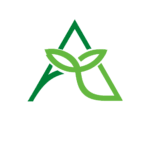
At the beginning of 2023, the IAAR joined the consortium as an associate partner, which participated in the Erasmus+ projects competition "Development of bachelor program in agroecology with dual education in Kazakhstan, AGROKAZ". The project grant holder is UNIVERSITY OF NOVI SAD (Serbia).
About project
The project aims to develop and implement the sustainable dual study undergraduate program in Agroecology at three universities in Kazakhstan as well as to establish lifelong courses for professionals. In the modern agriculture, developing resource-saving technologies for the cultivation of agricultural crops, methods for producing high-quality crop products, effective ways of reproducing soil fertility, and methods of agroecological monitoring allows not only to survive despite all challenges, but also to successfully deal with fierce competition.
The main goal of the project is to reduce the gap in the structure, volume and quality of labour resources from the real requirements of specific farms/enterprises and to educate professionals with competencies related to modern technologies. The (re)design of the educational program in agroecology in Kazakhstan through establishment of sustainable, internationally oriented dual study program will make students better prepared for all challenges facing agriculture in the future.
Outcomes of participation: the project is being implemented (01.02.2023 – 31.01.2026)
Official site of the project AGROKAZ
Disclaimer Erasmus + programme
This project has been funded with support from the European Commission. This publication reflects the views only of the author, and the Commission cannot be held responsible for any use which may be made of the information contained therein.
Kazak Universities to Foster Quality Assurance Processes in Technology Enhanced Learning, KUTEL


At the beginning of 2018, the IAAR re-entered the consortium as a partner, which participated in the Erasmus+ projects competition "Kazakhstan Universities to foster quality assurance processes in Technology Enhanced Learning, KUTEL’’. The coordinator of the project is the University of Research Guglielmo Marconi-Telematika, Italy (Università degli Studi Guglielmo Marconi, USGM (Italy).
The goal of the project is to promote the reform and modernization of higher education in Kazakhstan through the introduction of a national quality assurance system for learning using advanced technologies.
Outcomes of participation: the project is being implemented (from November 15, 2018 till November 14, 2021)
Official site of the project KUTEL
Instagram of the KUTEL Project
Project brief
598377-EPP-1 -2018-1-IT-EPPKA2-CBHE-SP
Project information
International scale
Characteristics, goals and objectives of the project
The pilot project of KUTEL will be aimed at strengthening the role of higher education (HE) in Kazakhstan, a strategic tool to stimulate economic growth, increase employment, and consequently - the quality of life and social well-being of citizens. KUTEL contributes to the reform and modernization of the HE through the introduction of the national quality assurance system (QA) for training using technologies (OIT) new and complex in the EU and Kazakhstan, the introduction of accreditation standards, guidelines and procedures for QA courses and training programs for OIT at the national / international level.
In this way, KUTEL will contribute to increasing the number of students, despite the difficult conditions of unsustainable economic growth, through the widespread use of e-learning and high-quality education.
The main results correspond to the existing needs and support national priorities / the priorities of the EU:
1. Accreditation standards, guidelines and quality assurance (QA) procedures for the development of LUT training programmes in Kazakhstan in accordance with EU practice;
2. The pilot training is designed for key participants of the public / private he SYSTEM, academic staff and accreditation bodies of the QA HE in order to improve competencies / skills to create the basis of the QA in the training programs of the LUT;
3. Teaching methods that have been modernized and reformed through the development of a quality assurance system (QA) as part of blended learning;
4. The EU road map for LUT quality standard, the basic Kazakhstan LUT quality assurance system, the system recommendations will be further developed for a successful capacity building process.
Intended effect: the direct beneficiaries, responsible for the modernization IN involved in the pilot 85-minute training, those who participate in every national event for the development (about 40/50 participants at 1-m and 80 - to 2-m); 6000 visitors to the site KUTEL; 150 participants at the final conference; a database of contacts with rating 100/150 on the country of the project. At the preparatory stage, about 50 teachers and 5 state bodies from Kazakhstan partners were involved.
| Registration number | 598377-EPP-1 -2018-1 -IT-EPPKA2-CBHE-SP |
| The Name Of The Application | KAZAKH UNIVERSITIES TO FOSTER QUALITY ASSURANCE PROCESSES IN TECHNOLOGY ENHANCED LEARNING |
| Short name | KUTEL |
| Code | CBHE-SP |
| Applicant | University Of Studies Guglielmo Marconi |
| Project start date | November 15, 2018 |
| The end date of the project | November 14, 2021 |
| Duration (months) | 36 |
| Type of project | National project |
| Specific activity | Modernization of management, management and functioning of universities |
| Subject/Subject area | Quality assurance processes and mechanisms |
| Objectives CBHE |
Support Partner Countries to address the challenges facing their higher education institutions and systems, including quality, relevance, equal access, planning, implementation, management, governance. Support the modernization, accessibility and internationalization of higher education in Partner Countries |
| Tasks CBHE |
Improving the level of competencies and skills in universities through the development of new and innovative educational programs Improving the quality of higher education and its relevance to the labour market and society |
| Regional status |
Intraregional |
| Regions involved |
R7 |
| Country Of Application |
IT |
| Partner countries |
KZ(10) |
| Programme Countries |
IT (1), FI (1), EL (1), BG (1) |
Disclaimer Erasmus + programme
This project has been funded with support from the European Commission. This publication reflects the views only of the author, and the Commission cannot be held responsible for any use which may be made of the information contained therein.
Enhancement of Postgraduate Studies on Sustainable Agriculture and Future Farming Systems, SAGRIS

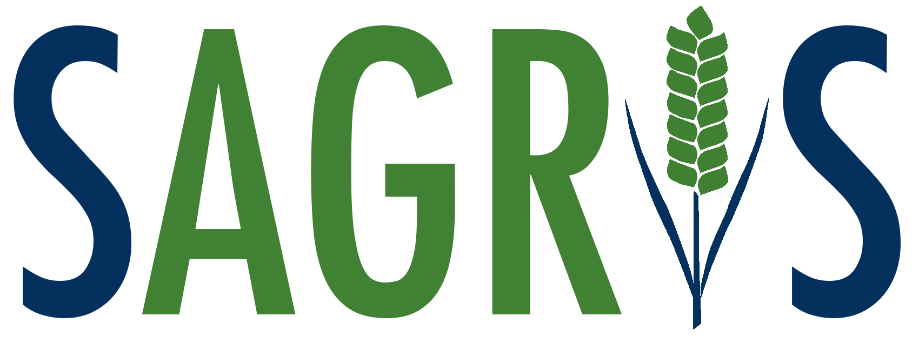
At the beginning of 2019, the IAAR joined the consortium as a partner, which participated in the Erasmus+ projects competition "Enhancement of Postgraduate Studies on Sustainable Agriculture and Future Farming Systems, SAGRIS". The project coordinator is Nürtingen-Geislingen University of Applied Science, HfWU (Germany).
Outcomes of participation: the project is being implemented (from 15 January 2020)
Official site of the SAGRIS project
Brief Project Description
|
Registration number |
610383-EPP-1-2019-1-DE-EPPKA2-CBHE-JP |
|
The Name Of The Application |
Enhancement of Postgraduate Studies on Sustainable Agriculture and Future Farming Systems |
|
Short title |
SAGRIS |
|
Code |
CBHE-JP |
|
Applicant |
Nürtingen-Geislingen University of Applied Science, HfWU (Germany) |
|
Project start date |
15 January 2020 |
|
Kazakhstan project partners |
Kazakh National Agrarian University
West Kazakhstan Agrarian-Technical University named after Zhangir khan
A.Baitursynov Kostanay State University
S.Seifullin Kazakh Agro Technical University
JSC «National Agrarian Scientific and Educational Center» (NANOC)
Independent Agency for Accreditation and Rating IAAR |
Disclaimer Erasmus + programme
The European Commission's support for the production of this publication does not constitute an endorsement of the contents, which reflect the views only of the authors, and the Commission cannot be held responsible for any use which may be made of the information contained therein.
Implementation of Education Quality Assurance System via Cooperation of University- Business- Government in HEIs, EDUQAS

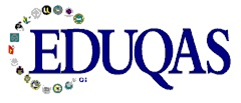
In 2017, the IAAR joined the consortium as a partner, which participated in the Erasmus+ projects competition "Implementation of Education Quality Assurance System via Cooperation of University- Business- Government in HEIs". The coordinator of the project is the University of Craiova, Romania (UNIVERSITATEA DIN CRAIOVA (Romania).
The aim of the project is to improve the quality assurance systems of education by developing effective internal quality standards leading to better job placement opportunities for students in partner countries’ universities. The internal quality control system will be based on an analysis of the needs and opportunities of Kazakhstan and Ukrainian universities, experiences and best practices of the quality system in the Bologna process.
Project activities:
- motivation, trust, student responsibility, institutional leadership, individual employees
- develop proposals for undergraduate and graduate programs with the involvement of all stakeholders
- Bachelor's and Master's programs, the developed program should meet the objectives, including learning outcomes. The qualifying results of the program should be clearly defined
- Improve the partner network of the university-business through cooperation with EU universities
- Improve the quality of information
- Develop a corporate quality assurance infrastructure based on online, mobile technologies.
Expected results:
- Development of effective internal quality standards.
- Improving self-assessment and quality assurance in the development of national quality assurance and development strategies for HEIs
Disclaimer Erasmus + programme
This project has been funded with support from the European Commission. The posted material reflects the views only of the authors, and the Commission cannot be held responsible for any use which may be made of the information contained therein
Outcomes of participation: the project is being implemented (2017-2020)

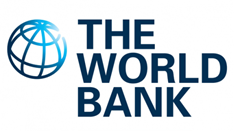
Project "Development of labor skills and promotion of jobs"
The IAAR jointly with GDSI Limited participated in the project "Reviewing best practices to develop a systematic approach to align the National Qualifications Framework with Professional and Higher Education Programs" (KZSJ-1.2/CS-01-CQS).
IAAR representatives as experts developed mechanisms for accreditation systems and agencies, operating in the territory of the Republic of Kazakhstan, to ensure sustainability in implementation of the competence approach in the system of TVE and HE.
This project is carried out within the framework of the project "Development of labor skills and promotion of jobs", implemented by the Ministry of Labor and Social Protection of the Republic of Kazakhstan with the technical and financial support from the World Bank.
The goal of the project is to improve the results in employment and labor skills of target beneficiaries and increase the relevance of training programs and learning in institutions of technical and vocational education and higher education institutions.
The project is implemented within the framework of the World Bank's Strategic Cooperation with the Government of the Republic of Kazakhstan, aiming to support economic diversification, skills development and jobs related reforms.
Link to the World Bank website with information about the project:
Official site of the project World Bank
Outcomes of participation: the project is being implemented
Enhancing the Coverage and Connectivity of QA in the EHEA through DEQAR (DEQAR CONNECT)

At the beginning of 2020, the IAAR joined the consortium as a partner that participated in the Erasmus+ projects competition “Enhancing the Coverage and Connectivity of QA in the EHEA through DEQAR (DEQAR CONNECT)". The project is coordinated by the European Quality Assurance Register for Higher Education EQAR)
The project focuses on two key EHEA commitments supporting quality assurance and recognition in the EHEA, and consists of two areas:
- Expand the EHEA countries coverage that are currently underrepresented in DEQAR by supporting the participation of agencies that were not able to join DEQAR at the first stage.
- Expand connectivity opportunities by leveraging existing interaction capacities and exploring new ways to use DEQAR data directly in the recognition, digital records, and elsewhere.
Project partners (21)
- CIMEA – Centro di Informazione sulla Mobilità e le Equivalenze
- CNRED – National Center for Recognition and Equivalence of Diplomas
- Nuffic
- CIEP – Centre international d’études pédagogiques
- ASHE – Agency for Science and Higher Education
- NVAO – Accreditation Organisation of the Netherlands and Flanders
- ACQUIN – Accreditation, Certification and Quality Assurance Institute
- ACSUCYL – Quality Assurance Agency for the University System of Castilla y León
- AEQES – Agence pour l’Evaluation de la Qualité de l’Enseignement Supérieur
- AIC – Academic Information Centre
- ANQA – National Center For Professional Education Quality Assurance
- AQ Austria – Agency for Quality Assurance and Accreditation Austria
- CTI – Engineering Degree Commission
- EAEVE – European Association of Establishments for Veterinary Education
- HAC – Hungarian Accreditation Committee
- IAAR – Independent Agency for Accreditation and Rating
- IQAA – Independent Agency for Quality Assurance in Education
- MusiQuE – Music Quality Enhancement
- NCEQE – National Center for Education Quality Enhancement
- NCPA – National Center for Public Accreditation
- SKVC – Centre for Quality Assessment in Higher Education
Associated partners (4)
- ENQA – European Association for Quality Assurance in Higher Education
- ESU – European Students Union
- EUA – European University Association
- EURASHE – European Association of Institutions in Higher Education
“Disclaimer” of the Erasmus+ program
The project is implemented under the Erasmus+ program framework, funded by the European Commission. The content of this publication / material is the responsibility of the author and does not reflect the views of the European Commission.
Participation results: the project is under implementation (from February 1, 2020 to January 31, 2022)
DEQAR Explainer Video